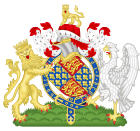Ordinance of Labourers 1349 facts for kids
Quick facts for kids Act of Parliament |
|

|
|
| Citation | 23 Edw. 3 cc. 1–8 |
|---|---|
The Ordinance of Labourers 1349 was an important law in England. Many people see it as the beginning of worker's rights in England. This law tried to control how much people were paid. It also set prices for goods. The law said that everyone under 60 years old had to work. It also stopped people from hiring away someone else's workers.
The king and his advisors created this law. They were worried because so many workers had died. This meant that the remaining workers could demand very high wages. The law aimed to fix these problems.
Contents
Why the Law Was Made
The Black Death's Impact
The Ordinance was created because of the Black Death. This terrible disease spread across England from 1348 to 1350. It killed a huge number of people. About 30% to 40% of the population died.
Changes in the Economy
With so many people gone, there were not enough workers. This was especially true for farm work. Landowners faced a big problem. They either had to pay much higher wages or leave their fields unplanted.
Wages for workers went up a lot. This also caused prices for goods to rise. Wealthy landowners found it hard to deal with these changes. They were frustrated by the lack of cheap labor.
Workers' New Power
A writer named John Gower complained about workers after the plague. He said they were "sluggish, scarce, and grasping." This meant they were lazy, hard to find, and demanded too much money.
However, many workers actually benefited. They could ask for higher wages. Peasants and laborers, who were once tied to the land, gained more freedom. Employers had to compete to find workers. This shift in power was a big deal. It led to many social and economic changes in England. King Edward III of England issued this law on June 18, 1349.
What the Law Said
The Ordinance of Labourers had several main rules:
- Everyone under 60 years old had to work.
- Employers were not allowed to hire too many workers.
- Employers could not pay more than the wages paid before the plague. Workers also could not accept higher wages.
- Food prices had to be fair, with no extra profit.
- No one was allowed to give money or help to able-bodied beggars. If they did, they could be put in prison.
What Happened After
The Law's Effects
Most people agree that the Ordinance of Labourers did not work very well. The English Parliament tried to make it stronger with the Statute of Labourers in 1351. But workers still managed to get higher wages.
Most people in the working class actually had a good century. They enjoyed more money and better lives. This lasted until the number of workers and available land balanced out again. Then, wages and prices went back to how they were before the plague.
Long-Term Changes
Even though the economy eventually returned to normal, the plague changed society forever. The huge loss of life gave more power to the working classes. This also weakened the wealthy landowners. They had to give up some power to stay important in society and the economy.
Workers also gained more power to negotiate for their rights. This slowly led to better conditions for workers in Britain.
The Ordinance was eventually removed from law. This happened much later, by the Statute Law Revision Act 1863 and the Statute Law (Ireland) Revision Act 1872.

